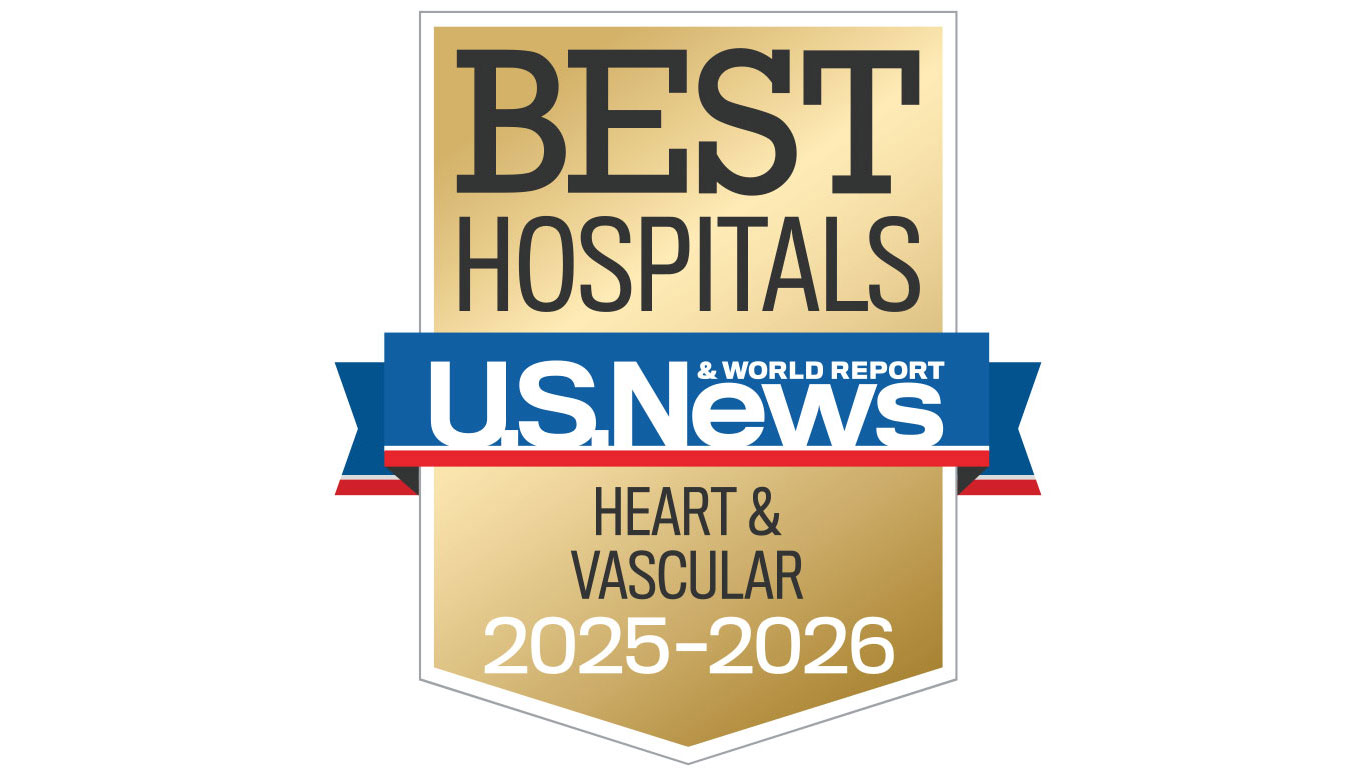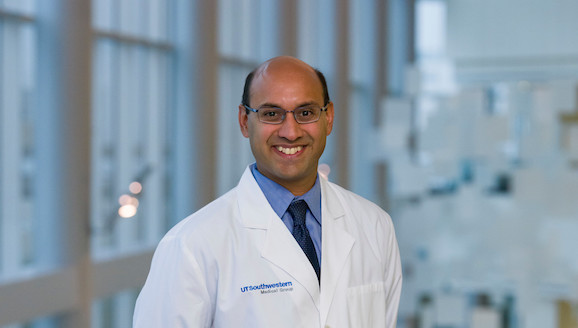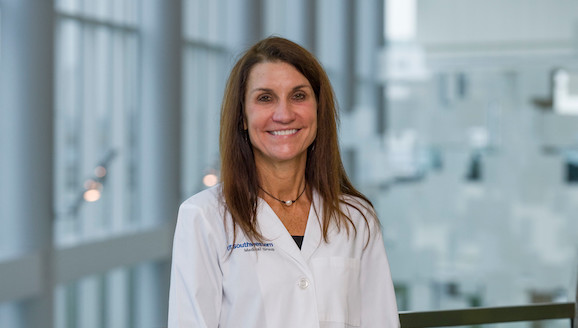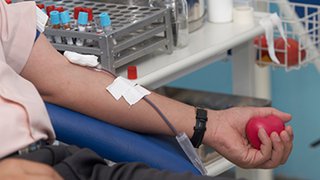Personalized Care to Reduce Heart Disease Risk
Preventive cardiology is a subspecialty focused on lowering patients’ risk for developing heart disease and having a first heart attack or stroke while also preventing further issues in people who already have cardiovascular disease.
A unique resource in the region, UT Southwestern’s multidisciplinary Preventive Cardiology Program offers specialized expertise and a comprehensive range of services proven to reduce the risk for cardiovascular disease and related complications.
Comprising experienced doctors, nurses, a nutritionist, and an exercise physiologist, our team is a recognized leader in preventing heart disease in both straightforward and highly complex cases, such as in young patients who have suffered a heart attack.
We first evaluate each patient’s risk of developing cardiovascular disease – or risk of suffering a cardiovascular event, such as a heart attack or stroke – and examine hereditary factors and other conditions that can affect patients’ future health.
We then develop patient-specific medical plans to aggressively reduce the risk factors for each individual.
We also serve as expert resources for patients who want to know more about test results, research studies, new treatments, and other heart-related information they hear about.
Who Should See a Preventive Cardiologist?
People most likely to benefit from seeing our preventive cardiology team include those with:
- A strong family history of heart attack, stroke, or peripheral artery disease
- A personal history of cardiovascular disease, especially in people younger than 60
- Difficult-to-control risk factors for atherosclerosis, particularly significant cholesterol disorders
- Controllable risk factors, such as:
- High blood pressure
- High blood sugar or diabetes
- Obesity, especially with excess abdominal fat
- Smoking
- Unhealthy diet
- Lack of exercise/sedentary lifestyle
- Uncontrollable risk factors, such as:
- Gender: Men are at higher risk for cardiovascular disease than women.
- Age: Older people, including postmenopausal women, are more likely to have heart disease.
- Race and ethnicity: Heart disease is more prevalent among African-Americans than among Caucasians.
- Family history of cardiovascular disease
Preventive Cardiology Services We Offer
UT Southwestern’s multidisciplinary Preventive Cardiology team delivers skilled, compassionate care that’s informed by the most current research. Our services include:
Comprehensive Cardiovascular Risk Assessment
Our preventive cardiologists determine the risk of heart attack and stroke in patients with no known heart disease. We have special expertise in evaluating people with complex circumstances, including young people, those with atypical risk factors, and those with a strong family history of cardiovascular disease.
Our team determines a person’s cardiovascular risk by assessing:
- Traditional risk factors, such as cholesterol and blood pressure
- Lifestyle factors
- A detailed family history of heart disease
- Imaging tests of the heart and blood vessels
- Advanced blood tests, such as C-reactive protein and advanced lipoprotein testing, as necessary
Multidisciplinary Risk Intervention
Our multidisciplinary team members work together to develop personalized medical plans aimed at addressing each of our patients’ unique cardiovascular risk factors.
To help patients reduce their risks and achieve heart-healthy lifestyles, our preventive cardiology experts work closely with them to provide counseling, support, and regular monitoring.
When necessary, our doctors prescribe medications to mitigate heart disease risk factors.
Cholesterol Management
Our preventive cardiologists and clinical nutritionist evaluate all patients with cholesterol problems and make dietary recommendations as needed. Our nurse practitioner follows these patients closely.
Our cholesterol management program includes:
- Expertise in complex and severe cholesterol disorders
- Board-certified specialists in cholesterol and other lipid disorders (lipidologists)
- Genetic testing when appropriate
- LDL apheresis for patients with familial hypercholesterolemia, a rare genetic cholesterol disorder
Advanced Cardiac Imaging
When appropriate, we offer patients advanced cardiac imaging tests, such as coronary artery calcium scoring and CT angiography.
These state-of- the-art studies help our team dig deeper when evaluating patients suspected of having issues that could compromise their cardiovascular health.
Nutrition Services
Our registered dietitian is an expert in the factors that impact preventive heart health, such as abnormal cholesterol levels, diabetes, high blood pressure, and obesity.
Our clinical nutrition services include:
- Nutritional consultations
- Computerized food-record analyses
- Diabetes education and nutrition counseling
- Heart-healthy eating plans
- Weight-loss instructions
Cardiac Rehabilitation
UT Southwestern’s 12- to 18-week Cardiac Rehabilitation Program includes supervised exercise and in-depth education. The goal of the program is to reduce the risk of future cardiovascular problems and events in patients who have recently had heart attacks, heart surgery, coronary artery stenting, angina, or other cardiac conditions.
Ongoing Care to Prevent Heart Disease
When it comes to heading off cardiovascular disease for the long haul – particularly in people at increased risk – “drive-by prevention” isn’t enough.
When patients first come to us, they have a comprehensive visit with one of our preventive cardiologists, a nutritionist, and an exercise physiologist. During that visit, we get to know each other, identify any concerns, decide if any testing is appropriate, and develop a personalized plan.
Patients typically come back to see us in about two months. It’s important that we follow up with patients to check on and reinforce their new lifestyle changes, ask and answer new questions, and, if necessary, refine their plans.
We’ll often see patients again in four months to check in, offer support, and alter their plans as needed. Our care continues according to each patient’s risk and need.

















